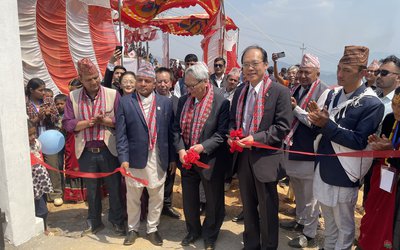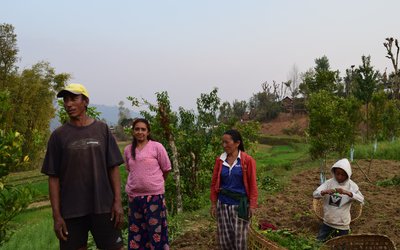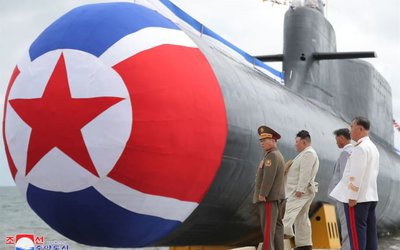Nepal has been benefiting a lot from the technical support of the European Union (EU) in various development sectors, including energy, agriculture and infrastructure. Now, higher education is emerging as a new area for EU-Nepal cooperation.
With the quest for quality education rising, over 30,000 Nepali students are leaving for different parts of the world annually for higher education. Although the number of these students visiting Europe has increased, no official channel has been there to streamline the process.
Realizing the potential to tap into the flow of the Nepali students, EU and Nepal have joined hands to give further impetus to their ongoing cooperation in the education sector. They held the first ever EU-Nepal Conference on Higher Education Cooperation in the form of a Mini-Exhibition.
According to European Union, Europe has 4000 higher education institutions, from top-level research establishments to small, specialized colleges, hosting about one-fifth of the world's students (20 million) and 1.5 million academics. The mini-exhibition provided required guidance to Nepali students and offered avenues to explore educational, scholarship and career opportunities available in the European Union.
The EU-Nepal Conference on Higher Education on 26 October attracted active participation of the Ministry of Education of Nepal, University Grants Commission Nepal, Tribhuvan University, Federation of Nepal Cottage and Small Industries, scholars, practitioners and students, among other important stakeholders.
Over 50 higher education institutions, national agencies and associations from
both Nepal and European Union member states came together to discuss cooperation between the higher education sectors of the two regions. The conference was opened by Rensje Teerink, Ambassador, European Union Delegation to Nepal, Yves Carmona, Ambassador of France to Nepal and Prof. Dr. Shudha Tripathi, Rector, Tribhuvan University. The forum allowed for good and inspiring discussions on the best practices and future developments of the sector.
"The first ever EU Nepal Higher Education Conference has contributed to bridge the information gap between seekers and receivers of quality education thereby promoting new opportunities to advance knowledge for the development of Nepal," Ambassador Teerink stated.
According to a press release issued by the Delegation of the European Union to Nepal, the European Higher Education Mini-Exhibition on 25 October complemented the conference and drew a good number of Nepali students eager to pursue their higher education in Europe. Representatives of universities from Poland, France, Finland and Latvia, as well as representatives from the British Council Nepal, Campus France Nepal, Study in Czech Republic and Germany, provided information about learning opportunities in Europe. The Erasmus Mundus Association shared practical experiences with the Erasmus Mundus scholarship programs available for Nepali students.
Cooperation between institutions of higher education and the exchange of scholars and students plays a crucial role in enhancing mutual knowledge and better understanding of Nepal and the EU, and of its people. Both the fair and the conference have contributed to consolidate this further.
The European Union has been awarding scholarships to Nepali students for studying abroad in various disciplines related to science and technology, agriculture, forestry, medicine, physics and engineering through the Erasmus + program.
More than 500 Nepali students have benefited from academic scholarships under the Erasmus Mundus Scholarship’s Program over the last decade.
In addition, the EU has also been involved in the capacity building of higher education through the Erasmus + Key Action 2. Out of 736 proposals submitted from 180 eligible countries, 147 new projects were selected for funding. Out of these, four new projects targeting Nepal has been selected to be implemented by 12 Higher Education Institutions including government and private sector
organizations in the field of energy efficiency, environmental management, health engineering and quality assurance.
As EU has been offering various scholarship programs to Nepali students and many Nepalis are leaving the country on their own, this kind of initiative will benefit the aspiring Nepali students to study in Europe.
- TANAHU HYDROPOWER PROEJCT: A Significant Achievement
- Apr 15, 2024
- AMBASSADOR HANAN GODAR: Sharing Pain With A Nepali Family
- Mar 30, 2024
- VISIT OF KfW AND EIB TO NEPAL : Mission Matters
- Mar 25, 2024
- NEPAL BRITAIN SOCIETY: Pratima Pande's Leadership
- Mar 24, 2024
- NEPAL ARMY DAY: Time To Recall Glory
- Mar 15, 2024
















